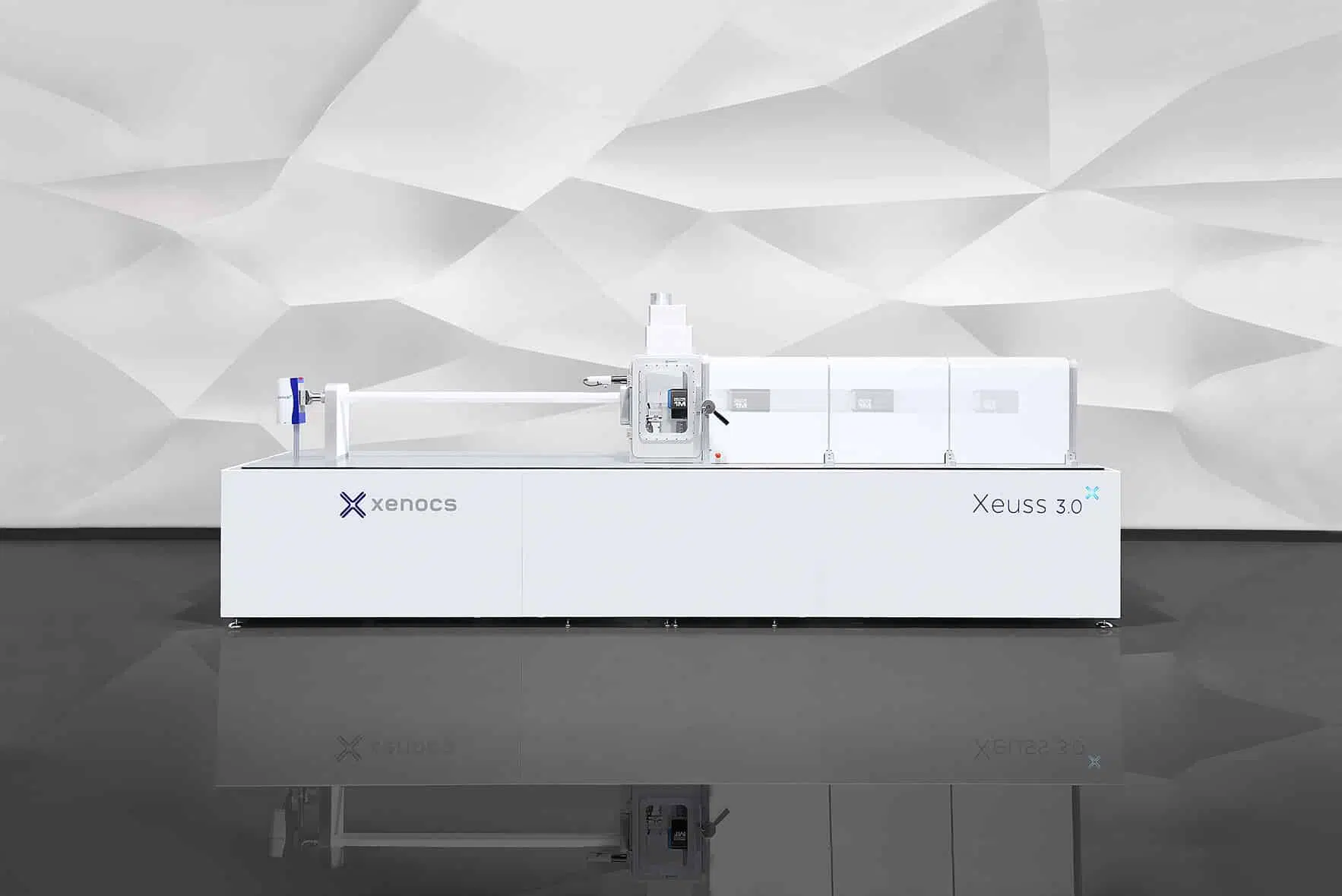Arteta, Marianna Yanez; Kjellman, Tomas; Bartesaghi, Stefano; Wallin, Simonetta; Wu, Xiaoqiu; Kvist, Alexander J.; Dabkowska, Aleksandra; Székely, Noémi; Radulescu, Aurel; Bergenholtz, Johan; Lindfors, Lennart
Successful reprogramming of cellular protein production through mRNA delivered by functionalized lipid nanoparticles
The development of safe and efficacious gene vectors has limited greatly the potential for therapeutic treatments based on messenger RNA (mRNA). Lipid nanoparticles (LNPs) formed by an ionizable cationic lipid (here DLin-MC3-DMA), helper lipids (distearoylphosphatidylcholine, DSPC, and cholesterol), and a poly(ethylene glycol) (PEG) lipid have been identified as very promising…
A comparative study of anion-exchange membranes tethered with different hetero-cycloaliphatic quaternary ammonium hydroxides
Dang, Hai-Son; Jannasch, Patric
Journal of Materials Chemistry A, 2017, vol 5, 41, pp. 21965-21978DOI:10.1039/C7TA06029GVisit the full articleBack to the overview
Improving Faraday rotation performance with block copolymer and FePt nanoparticle magneto-optical composite
Miles, Alexander; Gai, Yue; Gangopadhyay, Palash; Wang, Xinyu; Norwood, Robert A.; Watkins, James J.
Magneto-optical (MO) composites with excellent Faraday rotation (FR) response were fabricated using iron platinum (FePt) nanoparticles (NPs) and polystyrene-block-poly (2-vinyl pyridine) (PS-b-P2VP) block copolymers (BCPs). Gallic acid functionalized FePt NPs with average core diameters (dcore) of 1.9, 4.9, 5.7 and 9.3 nm have been selectively incorporated into a P2VP domain…
Influence of Extensional Stress Overshoot on Crystallization of LDPE
Wingstrand, Sara Lindeblad; van Drongelen, Martin; Mortensen, Kell; Graham, Richard S.; Huang, Qian; Hassager, Ole
Low-density polyethylene (LDPE) shows a stress overshoot in start-up of strong uniaxial extensional flows of constant rate. It is believed that the overshoot is caused by a contraction of the polymer backbone due to alignment of the long chain branches—the consequence being that the molecular strain of the backbone does…
Influence of electron-induced reactive processing on structure, morphology and nano-mechanical properties of polyamide 6/fluoroelastomer blends
Banerjee, Shib Shankar; Janke, Andreas; Jehnichen, Dieter; Gohs, Uwe; Heinrich, Gert
Electron-induced reactive processing (EIReP) is a sustainable and energy effective processing technology to modify polymeric materials in the molten state by its spatial and temporal precise energy input. In the present research, the influence of EIReP on nano-mechanical properties of polyamide 6 (PA6)/fluoroelastomer (FKM) blends (50/50 w/w) was successfully explored…
Synthesis and comparison of mesomorphic behaviour of a cholesterol-based liquid crystal dimer and analogous monomers
Champagne, Pier-Luc; Ester, David; Aldosari, Salem; Williams, Vance E.; Ling, Chang-Chun
Oligo/polymerisation of known mesogens constitutes a highly efficient strategy in liquid crystal research due to its potential to generate novel liquid crystal materials with intriguing mesomorphic properties. Here we report the synthesis and comparative studies of a synthetic liquid crystal dimer and two of its monomer analogues. By incorporating cholesterol…
Small-angle X-ray and neutron scattering demonstrates that cell-free expression produces properly formed disc-shaped nanolipoprotein particles
Cleveland, Thomas E.; He, Wei; Evans, Angela C.; Fischer, Nicholas O.; Lau, Edmond Y.; Coleman, Matthew A.; Butler, Paul
Nanolipoprotein particles (NLPs), composed of membrane scaffold proteins and lipids, have been used to support membrane proteins in a native-like bilayer environment for biochemical and structural studies. Traditionally, these NLPs have been prepared by the controlled removal of detergent from a detergent-solubilized protein-lipid mixture. Recently, an alternative method has been…
Effects of isolated chemical and mechanical degradation stressors on the ionomer morphology in fuel cell membranes
Venkatesan, Senthil Velan; Kjeang, Erik
The present work aims to understand the specific effects of isolated chemical and mechanical degradation stressors on the morphology and physico-chemical properties of fuel cell membranes. Chemical and mechanical degradation stressors are isolated in two specific, carefully designed accelerated stress tests of fuel cells. Degraded membranes are then extracted and…
Complex effect of graphite nanoplatelets on performance of HDPE/PA66 microfibrillar composites
Kelnar, Ivan; Bal, Ümitcan; Zhigunov, Alexander; Kaprálková, Ludmila; Fortelný, Ivan; Krejčíková, Sabina; Kredatusová, Jana
The effect of nanofillers (NF) on parameters of polymer blends in microfibrillar composites (MFC) is complex due the effect of NF on melt drawing. This work concerns HDPE/PA66 modified with graphite nanoplatelets (GNP) prepared by different mixing protocols. GNP influence the dispersed phase size in the original blend negligibly and…
Cellulose gelation in NaOH solutions is due to cellulose crystallization
Pereira, Ana; Duarte, Hugo; Nosrati, Pegah; Gubitosi, Marta; Gentile, Luigi; Romano, Anabela; Medronho, Bruno; Olsson, Ulf
Cellulose gelation in 2 M NaOH aqueous solution was followed by time resolved turbidity and rheology measurements. The kinetics of gelation is observed to change from several hours down to few seconds when the temperature is increased from 25 to 30 °C. The increase of turbidity upon gelation demonstrates the…


































